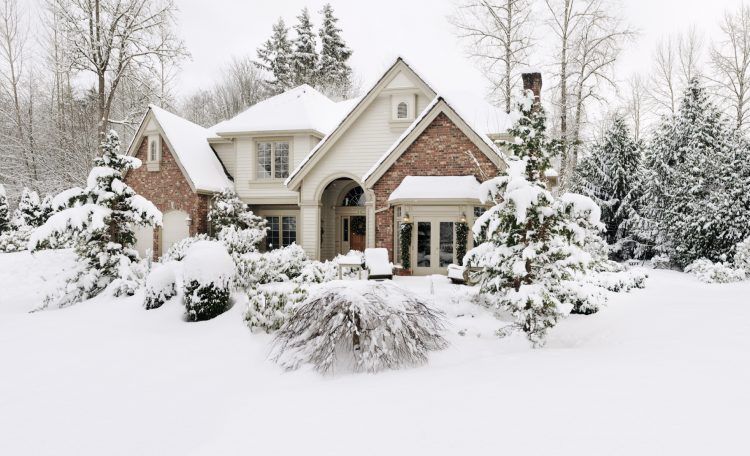
Buying a house may seem like a terrible idea in the winter, but that perception can work to buyers’ advantage. There are certainly good reasons why the winter months don’t seem like ideal buying conditions. In many parts of the U.S., they are cold, dark and icy. The winter is also jam-packed with holidays, including all the parties, family gatherings and travel they entail. And it’s the middle of a school year, which can be a deterrent for families with kids who don’t want to disrupt their children’s learning.
Those considerations are valid, and yet, perhaps counterintuitively, winter is actually the best time to buy a house. “If your circumstances give you the freedom to be able to choose the best time to look to sign a contract on a new home, there’s no question that the market dynamics favor you the most to do that in the dead of winter, ideally in January or February, right before the activity starts to heat up,” Jonathan Smoke, chief economist for Realtor.com, told NerdWallet.
Why? Let’s start with the greatest motivator: price. Between Black Friday, holiday discounts, and the January clearances, the winter months are a great time for sales, and home-buying is no exception. For anyone looking to get the most bang for their buck, winter is a desirable time to buy. You may be able to afford a home in a coveted neighborhood or school district, with more square footage or certain amenities, that would otherwise be out of your price range.
NerdWallet conducted an analysis of the past two years’ worth of listings and sales in the 50 most populous U.S. metro areas using data from Realtor.com. This study revealed that home sale prices are the lowest in the winter. Since summer is perceived as the best time to move (or at least it’s one of the most popular times to move), houses cost more: 8.45% more on average in the summer months than in the dead of winter. Another report from the National Association of Realtors (NAR) found that closings in January consistently show a dip in prices. Moving in the off-peak season can save buyers thousands of dollars.
“Closings in January provide the best discount for home buyers, meaning that buyers get the best deal when they get the home under contract around December,” wrote Lawrence Yun, chief economist for the NAR, in Forbes.
There are a number of reasons for this discount. One is inventory. NerdWallet found that there is 50 to 60 percent more inventory in the winter months relative to the number of buyers. Every buyer has more options and therefore less competition. Furthermore, fewer buyers shopping around means that houses stay on the market for a longer time—33 days longer, in fact, as compared to the summer months. It’s likely that sellers are highly motivated and eager to sell. As a result, buyers gain more leverage and negotiating power, which can further drive prices down and make sellers more amenable to contingencies.
However, even if there is more inventory relative to buyers, winter offers less inventory than spring and summer. Prospective buyers may find themselves with more limited options. London School of Economics Professors Silvana Tenreyro and L. Rachel Ngai co-authored a paper in the American Economic Review that looked at “seasonally adjusted” prices in the housing market. They found that during the summer, when more houses are for sale, people tend to find their “ideal house” quickly. It’s harder to find the perfect fit in the winter.
“It’s a bit like searching for bargains in a leftovers’ sale,” Tenreyro told The Atlantic. “You might see low prices but you are less likely to find your combination of size, color, and style. Only if you search a lot you might get the lucky draw.”
Buying a home is a big decision and prospective buyers need to weigh all the pros and cons. For example, you may be able to save close to 10 percent on the list price of a home by buying in the winter, but if it’s not your ideal house, how much will you have to spend on renovations? That said, looking at houses in the winter gives buyers the chance to see how they are holding up under tougher conditions.
Ultimately, time of year is just one of many considerations when buying a home, but the advantages are clear. This winter, think about putting a home on your holiday shopping list.
Matt Murphy is the CMO of Chime Technologies. Previously, Matthew was the Chief Marketing Officer & Co-Founder of Lemon.com, a leading mobile wallet solution (Acquired by LifeLock), General Manager of Bling Nation, a provider of mobile payment services; and the CMO at Chegg, the leader in textbook rentals. Matthew was also the head of Advertising & Media at E*TRADE Financial and won numerous awards for his work, including a Clio, Effie and Stevie Award. Matthew earned his Master’s in Business Administration from The Christos M. Cotsakos College of Business at William Patterson University, holds a degree in finance from Santa Clara University and attended executive marketing education courses at Northwestern University’s Kellogg School of Management.


Comments
Loading…